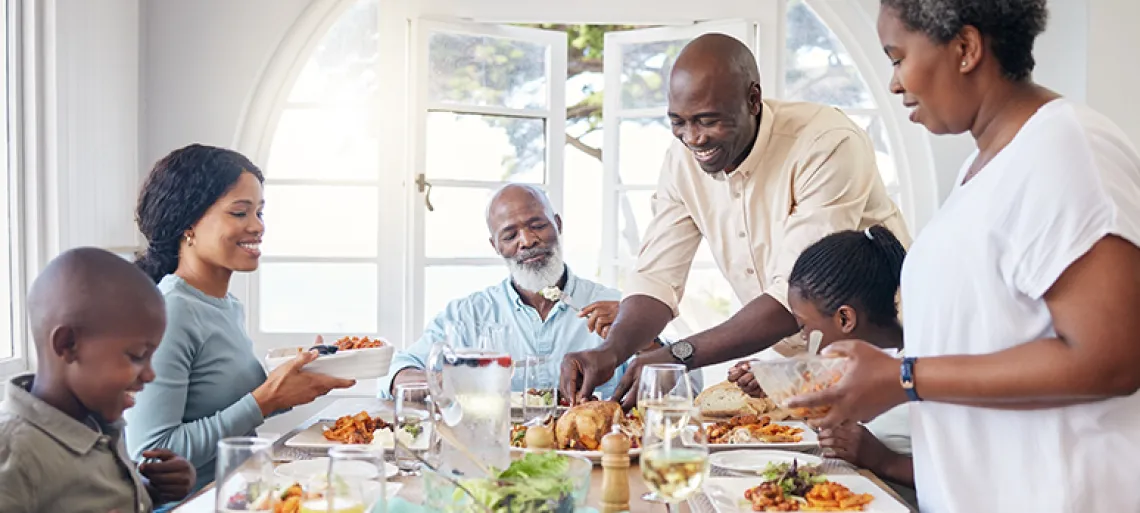Black History Month: Honoring Generations of Family Caregivers

Family and community tradition is a pattern of behavior that reflects and reinforces values, attitudes, and beliefs. This is powerfully demonstrated in Black communities and families through caregiving, where the tradition of caring for each other across generations runs deep.
Parents, children, siblings, friends, community members, and organizations step up to care for their loved ones while often balancing work, families, and other life and community responsibilities. As we see the differences in considerations like the diagnosis or type and the intensity of caregiving, or the fact that caregiving often includes caring for more than one person, there is an incredible diversity of family caregiving. History, culture, race, spirituality, location, and aging outline how these differences affect existing challenges to accessing services and support.
- Of the 53 million family caregivers in the United States, 14% (7.2 million) identify as black.
- Black Americans have a higher rate of Alzheimer's disease and related dementias (ADRD) compared to other racial/ethnic groups, and their family caregiver population is expected to increase rapidly over the next two decades.
- A recent study showed that “minoritized populations” are less likely to receive an accurate and timely diagnosis, be prescribed medications, use hospice care, have a higher risk of hospitalization, and receive more aggressive life-sustaining treatment at end-of-life.
- Black women are more likely to provide unpaid care for an aging or disabled family member, and many Black women are forced to leave the workforce. Yet, almost 40 percent of caregivers of older adults are men, and one-third of that group is African American.
- More than a fifth of Black adults and nearly a third of Black caregivers fall into Sandwich Generation caregiving as they care for more than one person of different ages or generations.
- 57% of Black family caregivers experience “high burden” caregiving —providing an average of thirty hours per week. For these caregivers, double-duty caregiving responsibilities for children and adult family members impact financial and emotional stress, forcing families to cut back on work hours and navigate disjointed fragments of a care system with little to no formal support.
- While six out of ten family caregivers remain employed, Black caregivers are most likely (64%) to work while providing care and often have no access to family leave policies.
- While family caregivers report being penalized or discriminated against due to their caregiving responsibilities, Black caregivers were more likely to report a higher occurrence of penalization or discrimination at work due to their caregiving obligations.
- White families spend 14% of their annual income on care costs, while Black families bear a much heavier burden at 34% of their annual income on care-related costs.
- Although half of African American caregivers felt they had no choice but to be caregivers, a “majority find a sense of purpose” in caregiving.
Family caregiving in the Black community exemplifies incredible resilience and strength, as well as experiences of adaptation and tenacity to receive quality of care. The Black caregiving community’s story is one of challenges and strength, showing how caregivers pivot, advocate, adapt, and persevere to obtain the quality of life for family and community.
While juggling multiple responsibilities - caring for family members while working full-time jobs and raising their own children, Black caregivers spend more of their money on caregiving and face more challenges at work than other caregivers. While their dedication to family is inspiring, Black Caregivers also sacrifice much to provide quality of life and care.
This information is just the tip of the iceberg of Black family caregivers' complexities, experiences, and expertise. In the coming months, this newsletter will interview our university community of family caregivers to share connections and offer input on the differences and similarities of caregiving experiences.

